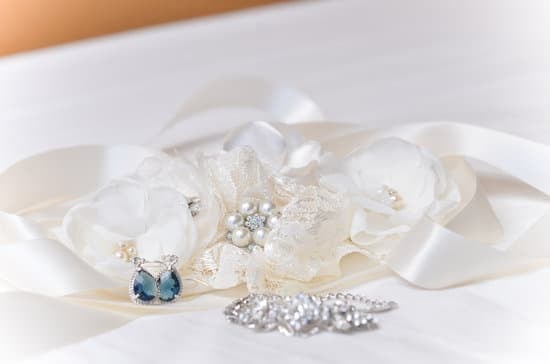Are you wondering, “Do bride and groom give speech at wedding?” Wedding speeches hold a significant place in the celebration of matrimony, serving as an opportunity for loved ones to express their sentiments and well-wishes for the newlyweds. In this article, we will delve into the tradition of speeches at weddings, explore who typically gives speeches, and specifically focus on the roles of the bride and groom in the speech-giving tradition.
Weddings are a time-honored tradition that brings together family and friends to celebrate love and commitment. As part of this celebration, speeches have become a customary way for those closest to the couple to share their heartfelt messages, anecdotes, and words of wisdom. This blog post aims to provide insight into the evolving roles of the bride and groom in delivering speeches at their wedding.
We will examine the history and cultural significance of wedding speeches, as well as analyze the traditional expectations for both the bride’s and groom’s speeches. Additionally, we will discuss modern trends and consider whether a joint speech from the bride and groom is a favorable option. Whether you’re planning your own wedding or simply curious about this longstanding tradition, this article will provide valuable insights into the role of speeches at weddings.
The Tradition of Speeches at Weddings
History and Tradition
The tradition of wedding speeches can be traced back to ancient civilizations, where it was common for individuals to make toasts to the health and happiness of the newlyweds. Over time, this practice evolved into formal speeches given by specific members of the wedding party. In some cultures, these speeches have deep-rooted symbolism, representing unity, blessings, and familial ties.
Cultural Significance
Different parts of the world have varying customs when it comes to wedding speeches. For example, in some Asian cultures, it is customary for the father of the bride to give a speech blessing the marriage. In Western traditions, we often see speeches from the best man, maid of honor, and parents of the couple. Understanding these cultural nuances can provide insight into why speeches are an integral part of wedding celebrations worldwide.
The significance of these speeches lies in their ability to bring people together in celebration of love and unity. While there may be differences in who gives speeches and what is said during them, the underlying sentiment remains consistent across cultures – to honor and support the newlyweds as they embark on this new chapter in their lives together.
Who Typically Gives Speeches at Weddings
Weddings are significant events that often involve speeches from various individuals, each playing a specific role in the ceremony. Traditionally, speeches at weddings are given by the father of the bride, the groom, and the best man. However, modern weddings have seen an expansion in the lineup of speakers, with other family members and even the bride herself taking on speech-giving duties.
The roles of the bride and groom in giving speeches at weddings have evolved over time. While it is customary for the father of the bride to give a speech expressing well wishes and welcoming guests to the celebration, many brides now also choose to make a speech. Brides may express gratitude towards their parents, bridal party, and share sentiments about their new life with their spouse.
When it comes to the groom’s speech, tradition dictates that he should thank guests for attending and acknowledge his new wife’s family. Today, however, grooms are increasingly seeking a more active speaking role and may share personal anecdotes or stories about their relationship. In some cases, couples may opt for joint speeches as a way to express their mutual appreciation for their loved ones and share heartfelt words about their marriage.
It is important for both bride and groom to consider their own comfort levels when deciding whether or not to give a speech at their wedding. While it can be daunting to speak in front of a large audience, delivering a heartfelt message can create lasting memories for everyone involved. Ultimately, the decision on whether or not to give a speech should reflect the couple’s personalities and desires for their special day.
| Speech Giver | Tradition |
|---|---|
| Father of the Bride | Welcome guests and express well wishes |
| Groom | Thank guests and acknowledge wife’s family |
| Bride | Express gratitude towards parents and bridal party; Share sentiments about new life with spouse |
The Bride’s Speech
The tradition of wedding speeches often places the spotlight on the groom, best man, and father of the bride, but in recent years, there has been a growing trend of brides taking the opportunity to give a speech at their wedding. The bride’s speech has become more common as couples seek to share the spotlight and express their gratitude and love in a more equitable way. So, should the bride give a speech at the wedding?
There are benefits to the bride giving a speech at her wedding. It allows her to express her gratitude, share personal stories, and thank her loved ones for their support in a meaningful way. It also provides an opportunity for the bride’s voice to be heard and adds a personal touch to the proceedings.
However, there may be potential challenges such as nervousness or uncertainty about what to say. Navigating these challenges can be daunting, but with careful planning and consideration, the bride can deliver a beautiful and heartfelt speech that will be remembered by all.
In modern times, many couples are opting for non-traditional approaches when it comes to wedding speeches. As such, more brides are choosing to give speeches alongside their grooms. A joint speech from the bride and groom can be a powerful way to convey their love story together and express their gratitude unitedly.
This approach not only reflects equality but also adds an extra layer of personal connection as they share this moment with their guests as equals. Ultimately, whether or not the bride gives a speech at her wedding is entirely up to her individual preference and comfort level.
The Groom’s Speech
Traditional Expectations
Traditionally, the groom’s speech at a wedding has been seen as a way for him to thank the guests for attending, express his love and gratitude to his new bride, and acknowledge both sets of parents. This traditional role often involves sharing anecdotes or jokes about his relationship with the bride, as well as offering some heartfelt words about their future together.
The groom’s speech is usually given after the father of the bride and before the best man.
Modern Trends
In recent years, there has been a shift in the expectations for the groom’s speech. Many grooms are now taking a more active role in planning their wedding and are also keen to have their voice heard during the celebration.
This has led to grooms becoming more involved in crafting their speeches, often opting for a more personal and emotional approach rather than sticking to traditional formalities. Some grooms also use this opportunity to thank important people involved in helping with the wedding arrangements.
The Changing Role of the Groom
With changing gender roles and evolving wedding traditions, the role of the groom in giving a speech has adapted to reflect these societal shifts. Today, it is not uncommon for grooms to take on a more active role in expressing their feelings and appreciation through a heartfelt speech. While some may choose to maintain traditional elements, such as thanking parents and guests, others may opt for a more contemporary approach that resonates with their personal values and relationship dynamics.
By considering these traditional versus modern trends when it comes to giving a groom’s speech at a wedding, couples can decide on what feels most authentic and meaningful to them on their special day.
Should the Bride and Groom Give a Joint Speech?
The idea of a joint speech from the bride and groom is becoming increasingly popular in modern weddings. This trend reflects the shift towards more egalitarian and inclusive practices in marriage ceremonies. A joint speech allows the couple to express their thoughts, gratitude, and hopes for the future together, symbolizing their equal partnership in marriage.
One of the benefits of giving a joint speech is that it can create a sense of unity and togetherness between the bride and groom. By speaking together, they can present a unified front and emphasize the mutual respect and love that underpin their relationship. Additionally, a joint speech can help to alleviate any nerves or pressure associated with public speaking, as each person has the support of their partner on stage.
However, there are also potential challenges when it comes to giving a joint speech at a wedding. For some couples, finding the right balance between two voices and ensuring both individuals are equally represented in the speech can be tricky. It’s important for couples considering a joint speech to plan ahead and communicate openly about what they each want to include in their address.
| Benefit | Challenge |
|---|---|
| Creates a sense of unity | Finding balance between two voices |
| Alleviates nerves | Ensuring equal representation in the speech |
Tips for a Memorable Bride and Groom Speech
Giving a memorable bride and groom speech at your wedding is an opportunity to express gratitude, share heartfelt sentiments, and celebrate the love you and your partner have for each other. Here are some practical tips for crafting and delivering a speech that will leave a lasting impression on your guests:
- Plan Ahead: Start by outlining the key points you want to cover in your speech. Consider expressing gratitude to family and friends, sharing anecdotes about your relationship, and offering well-wishes for the future.
- Personalize Your Speech: Tailor your speech to reflect your unique relationship with your partner. Share special moments, inside jokes, or significant milestones that have brought you closer together.
- Practice Makes Perfect: Rehearse your speech several times before the big day. Practice in front of a mirror or with a trusted friend or family member to build confidence and smooth out any rough edges.
- Keep It Brief: While it’s important to convey meaningful messages, aim to keep your speech concise and engaging. Strive for a balance between sentimentality and brevity to ensure that guests remain attentive throughout.
- Stay Calm and Collected: Nervousness is natural when speaking in front of a crowd. Take deep breaths, maintain eye contact with your audience, and speak slowly and clearly to convey sincerity.
By following these tips, you can deliver a heartfelt bride and groom speech that resonates with your loved ones and creates cherished memories for years to come. Remember that each couple’s approach to speeches may vary, so feel free to customize these guidelines based on your preferences.
Conclusion
In conclusion, the tradition of speeches at weddings has a rich history and cultural significance that varies across different parts of the world. While there are typical speakers at a wedding, including parents, best man, and maid of honor, the roles of the bride and groom in speech-giving have evolved over time. The question “do bride and groom give speech at wedding” is one that reflects this evolution, with modern trends challenging traditional expectations.
The decision of whether the bride and groom should give individual speeches or a joint speech ultimately depends on personal preferences and the couple’s unique relationship dynamics. While some couples may find comfort in following traditional expectations, others may embrace more modern trends by sharing a joint speech as a display of unity and partnership.
As readers consider their own preferences and traditions when it comes to speech-giving at their wedding, it’s important to remember that there is no right or wrong answer. Whether following tradition or breaking new ground, what matters most is that the speeches reflect the love, joy, and commitment shared by the couple on their special day. It’s an opportunity to express gratitude, share memorable moments, and set intentions for a lifetime of happiness together.
Frequently Asked Questions
Do Bride and Groom Do Speech Together?
Generally, the bride and groom do not give a speech together at a wedding. Instead, they typically each give their own separate speeches during the reception, expressing their gratitude and love for each other.
Who Traditionally Gives Speeches at a Wedding?
Traditionally, the father of the bride, the groom, and the best man give speeches at a wedding. The maid of honor may also give a speech, but it is not as common as the others.
Should the Bride Make a Speech at the Wedding?
Whether or not the bride should make a speech at her wedding is entirely up to her. It’s becoming more acceptable and common for the bride to give a speech expressing her thanks and love to her new spouse and guests. Ultimately, it’s a personal choice.

I have been involved in marriages for over 20 years helping couples and singles understand more about them.





